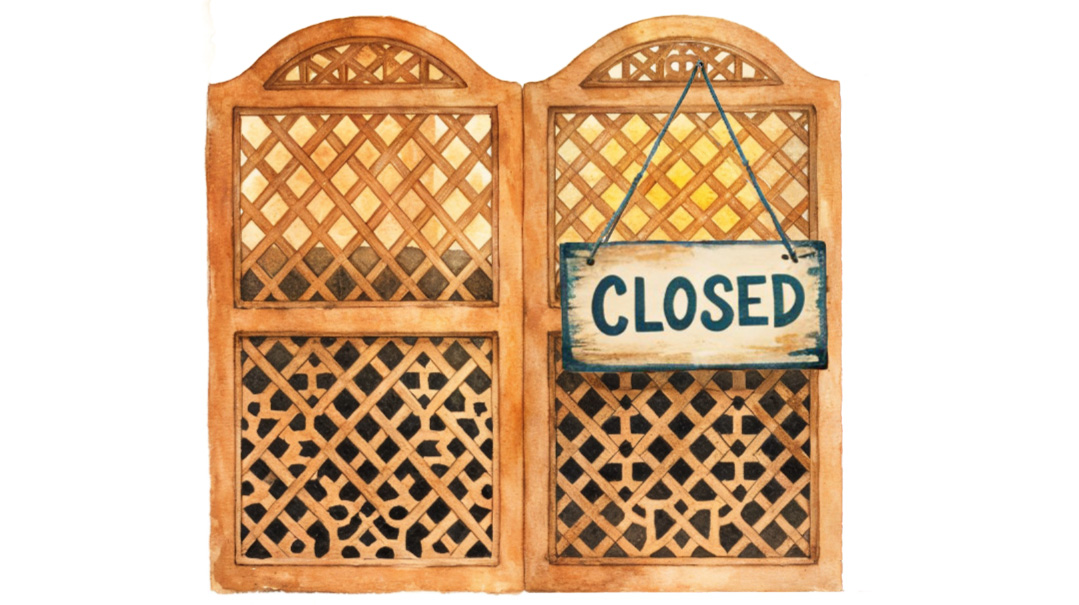Conversation at Dawn
| September 20, 2022I was desperate for relief, desperate for comfort, desperate for so many things only He could give me. I decided to give the alos thing a try

AS far back as I can remember,
I’d wake up Rosh Hashanah morning to the singsong of my father chanting Tehillim. I’d come down to find him swaying at his shtender, my mother whispering over her own Tehillim at the table. I knew I was witnessing the tail end of a tefillah session that had begun hours before what I considered to be morning.
Every Rosh Hashanah, my parents would awake at alos hashachar, sit down with their sifrei Tehillim, and recite the entire Sefer while the world slept. I always admired the practice, in a detached sort of way. I knew I could never do it — the entire Sefer Tehillim in one go seemed too colossal a task, and the only time I’d woken before the sun was for my eighth-grade graduation trip.
Then, the summer I was 16, I experienced a nightmare that knocked my world off balance, leaving me reeling and utterly broken. Rosh Hashanah drew near, and I was struggling in an ocean of grief and helplessness. I was desperate for relief, desperate for comfort, desperate for so many things only He could give me. I decided to give the alos thing a try.
It was hard, so hard, but at five a.m. that Rosh Hashanah, I extracted myself from sleep’s cozy embrace and began reciting one perek, then another, and another. I cried, I pleaded, I explained, I complained. I didn’t think, just let it all spill out, emotion in its rawest form. I spoke, and He listened, and we bonded, deeply.
And then it was day. I was spent and exhilarated, and I realized I’d done it. I’d completed all of Sefer Tehillim at alos hashachar. And I’d discovered a whole new level of tefillah.
It might have been the timing; the wee hours have a way of melting barriers and lowering defenses, stripping us down to our realest, most vulnerable selves. I’d seen many intense DMCs conducted, many closely guarded secrets revealed in those late-night hours.
Perhaps it was that same openness, that nighttime lack of inhibition, that turned my predawn tefillah into an experience of profound connection. An experience so special, I was motivated to repeat it the next year. And the next.
Rosh Hashanah followed Rosh Hashanah. I became a wife, then a mother. Nighttime no longer necessarily means sleep, and I’ve begun seeing sunrise a lot more frequently than I’d like. “Tired” has taken on an entirely new definition; if teenaged me found the early morning awakenings challenging, it definitely hasn’t gotten any easier.
It’s hard to wrench myself awake after waking for the baby three times in a five-hour night. It’s considerably harder to coax myself out of bed when there’s no guarantee I’ll get a decent night tomorrow.
But there’s also so much more to daven for, and so much less time.
Every year, come Rosh Hashanah, my Kosher Clock beeps its morning greeting in the blackness of night, and a mighty struggle ensues. The house is quiet, and sleep is so close, so tantalizing. But I might sleep tomorrow, or next week, or next month. Today is an opportunity I won’t have tomorrow, or next week, or next month. An opportunity too precious to squander on sleep. So, I peel my eyes open, tiptoe through the silence, and settle down with my Tehillim.
The sky is dark, the world slumbers, it’s just me and Him and my dreams and fears. In the safety of the night, I talk, uninhibited, daughter to Father. I discuss my needs and my desires, my hopes and regrets. I tell Him about my gratitude and my pain, the things I wish were different and the things I wish would stay the same.
I recite the words that say it all, word by word, page by page, as the blackness outside gradually fades into gray, then blue. Soon, tentative chirping breaks the stillness, and the world is bathed in brilliant light. All that remains of the night is a deep sense of contentment, witness to my predawn conversation.
There’s a patter of feet, and various sized pajama-clad figures appear, clamoring for honey cake. I linger just a moment, holding on to the magic, the connection. Then I close my Tehillim, kiss it, and turn to face my children.
I’ve had my Rosh Hashanah. I’m ready to give them theirs.
(Originally featured in Family First, Issue 811)
Oops! We could not locate your form.







